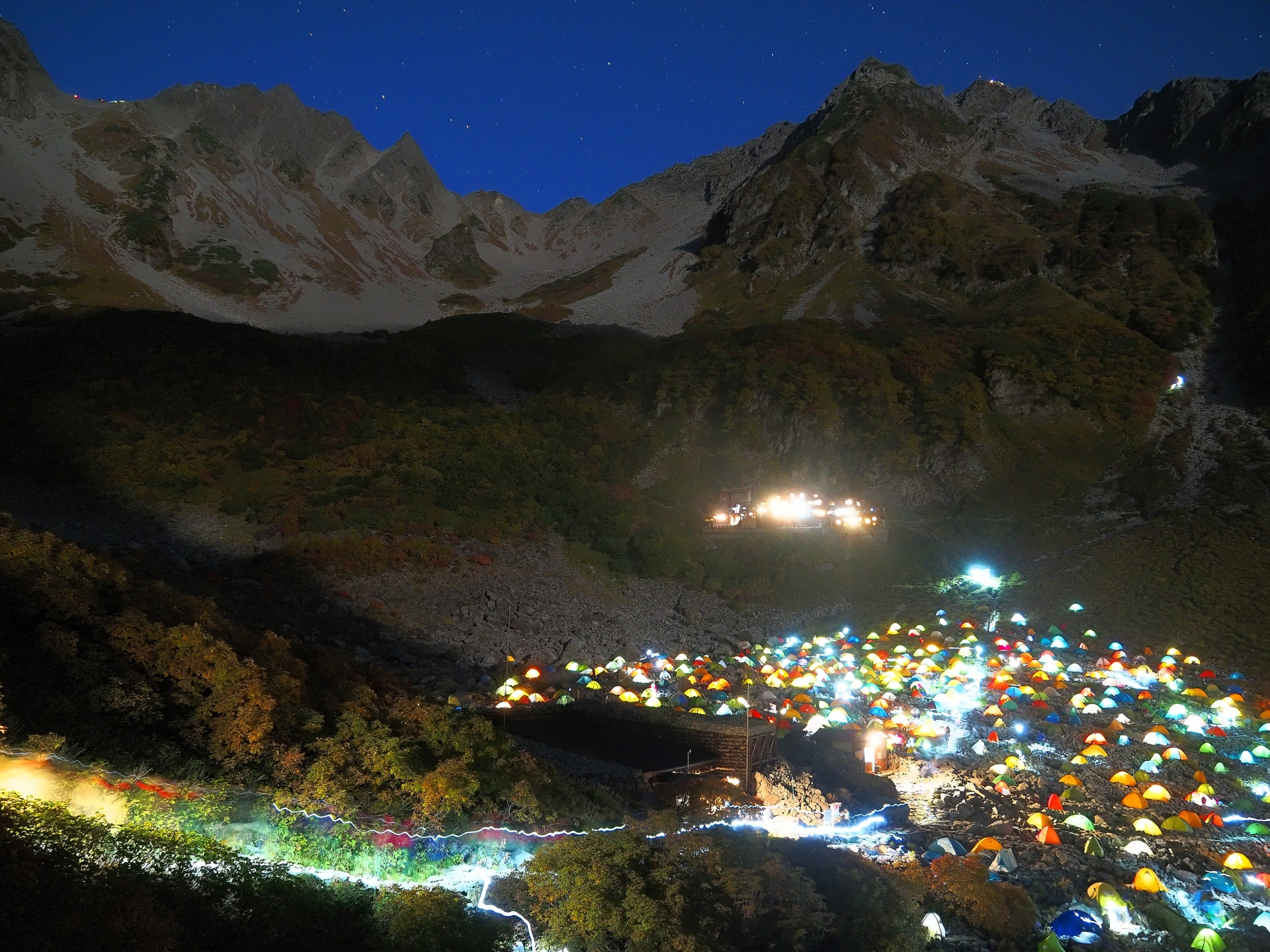What people expect for camping is to experience inconvenience.
Soon after graduating from college, I joined the Japan Air Self-Defense Force. Even though it’s an air force, new recruits are trained in a field exercise. I still clearly remember how it was. The memories first coming up in my mind are the strong smell of grass and trees that clung to me when ambushing in a thick forest, excitement when making a fire (mainly because of hunger pains), the sound of rain on the tent, beautiful sunrise in morning mist (after not sleeping a wink all night, though), etc. I imagine they are probably what many people expect for a camp. Camping becomes more and more popular in Japan. Me? No way. I was already camped out but am interested in why people do camping, going so far as spending a lot of money for camping gear.
We human beings have been keeping on making new inventions for convenience, in order to make our lives easy. Even if you’ve never camped, you can imagine how troublesome camping is, compared with our ordinary civilized life, can’t you? I believe we are basically lazy, so lazy that marketers (including me) have to struggle all the time to motivate people. In fact, it’s really difficult to provide an incentive for people to make some intended actions, even small ones like making a click. Why do many people willingly do camping, such a troublesome action? People who like camping will say “It’s for extraordinary experiences,” but what people actually do in camping are boiled down to super-ordinary things, like preparing meal, eating, clearing up after meal, and sleeping. I know it’s important to do such everyday routines in nature, though.

Our wooden furniture could be alternative to camping
The next question is why and how nature works on our mind. Today, in order to promote our furniture, let me focus on two answers to the question: Why do many people do camping? The 1/F fluctuation and phytoncide may be the two answers. The 1/F fluctuation is information or rhythm we perceive through the five physical senses. It is thought to work for relaxation and mental stability and to exist a lot in nature. In the murmuring of streams, the rustle of grass and leaves, the sunlight filtering through trees, etc. In addition, you can see it in the grain of wood.
The phytoncide is a volatile chemical diffused from plants (mainly from trees). I believe most of you have experienced the good smell of forest (wood), haven’t you? It has the effect of killing bacteria in addition to relaxing people. In a sense, you may be able to get the same benefit without going to the trouble of camping if you get our wooden furniture.

Shungo Ijima
He is travelling around the world. His passion is to explain Japan to the world, from the unique viewpoint accumulated through his career: overseas posting, MBA holder, former official of the Ministry of Finance.

